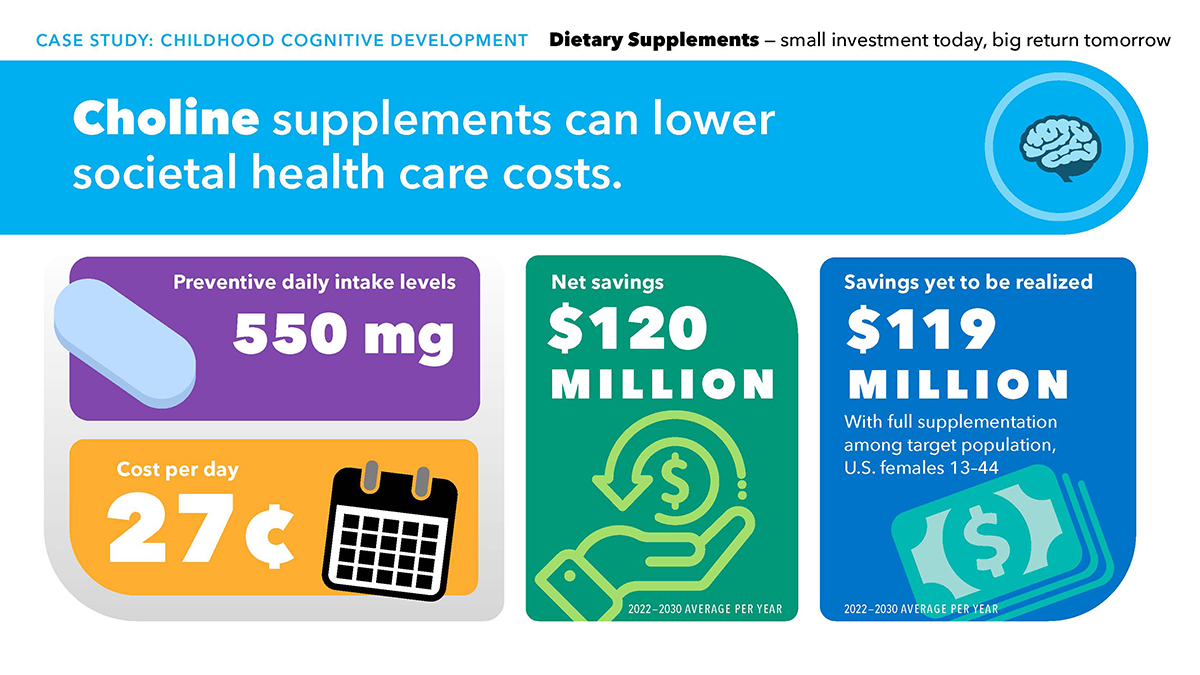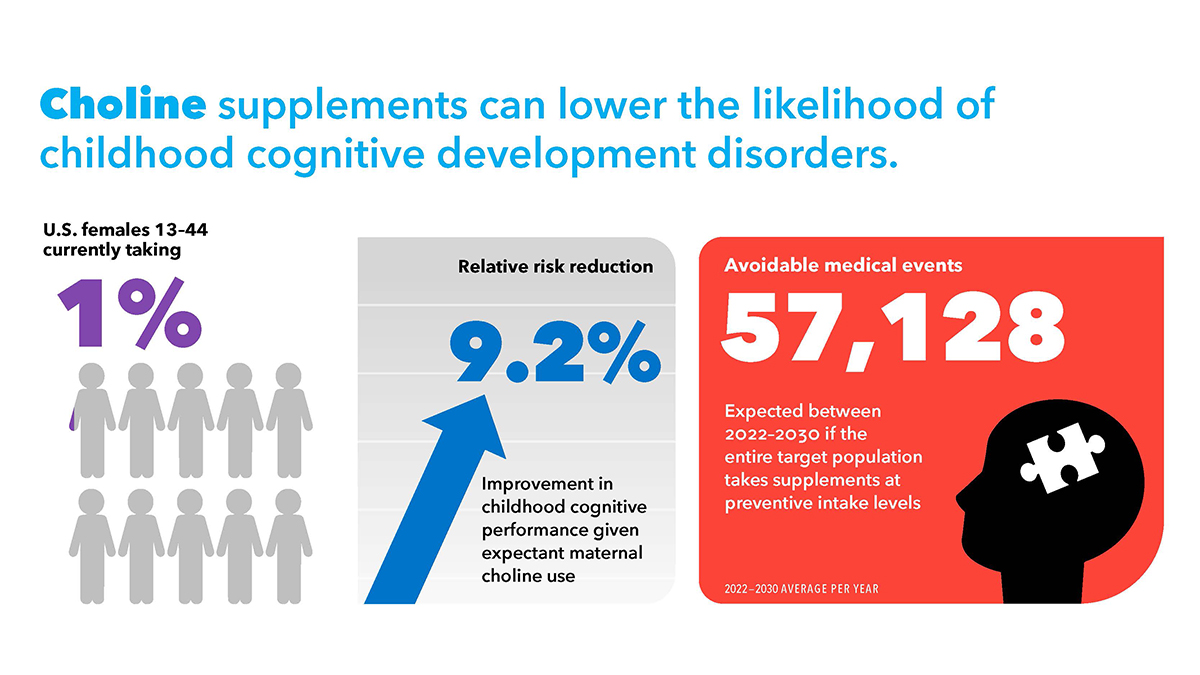— Choline Critical for Optimal Cognitive Development, Report Shows —
JANUARY 4, 2023
WASHINGTON—The Council for Responsible Nutrition (CRN), the leading trade association of the dietary supplement and functional food industry, this month is sharing scientific and economic data demonstrating the value of choline supplementation for early childhood development among the proactive measures women can take to support the development of a healthy baby.
January is National Birth Defects Awareness Month as recognized by the U.S. Centers for Disease Control and Prevention (CDC). The CDC recommends that women get 400 micrograms (mcg) daily of folic acid, a B vitamin, whether they plan on getting pregnant or not. CDC notes, “If a woman has enough folic acid in her body at least one month before and during pregnancy, it can help prevent major birth defects of the developing baby’s brain and spine (anencephaly and spina bifida).”
Choline is another essential nutrient that has been shown to support healthy fetal growth, specifically for optimal cognitive development. According to a report from the CRN Foundation and Frost & Sullivan, “It is becoming increasingly clear that adequate intake of choline by expectant mothers is critical for the optimal cognitive development of their children, yet inadequate intake of choline among expectant mothers is highly common.”

The preventive intake level of choline associated with a reduction of relative risk of an early childhood cognitive development disorder event is 550 mg per day, which is the FDA Daily Value for for adults and children aged 4 years and older. However, National Health and Nutrition Examination Survey (NHANES) data shows that most Americans do not obtain an adequate amount of choline, with statistics showing more than 90% of expectant mothers do not consume enough choline daily through their normal diet. Supplementation rates are currently very low, according to the CRN Consumer Survey on Dietary Supplements, indicating more education about the value of choline supplementation is needed.
The report, “Supplements to Savings: U.S. Health Care Cost Savings from the Targeted Use of Dietary Supplements, 2022–2030,” includes a chapter detailing how supplementation with choline can improve quality of life and reduce health care costs associated with early childhood cognitive development disorders. The chapter, "Choline and Early Childhood Cognitive Development," discusses costs associated with early childhood cognitive development disorders and includes a scientific literature review as well as an analysis of the economic implications.
According to the report, the net cost savings expected from reduced health care-attributed expenditures in 2022 from avoided early childhood cognitive development disorder events would have been $113 million in 2022, and $120 million per year average in net savings during the period 2022 to 2030—or over $1 billion in cumulative savings in added health care costs associated with early childhood cognitive performance disorders.
The Council for Responsible Nutrition (CRN), founded in 1973, is a Washington, D.C.-based trade association representing more than 200 dietary supplement and functional food manufacturers, ingredient suppliers, and companies providing services to those manufacturers and suppliers. In addition to complying with a host of federal and state regulations governing dietary supplements and food in the areas of manufacturing, marketing, quality control and safety, our manufacturer and supplier members also agree to adhere to additional voluntary guidelines as well as to CRN’s Code of Ethics. For more information, visit www.crnusa.org. Follow us on Twitter @CRN_Supplements and LinkedIn.



